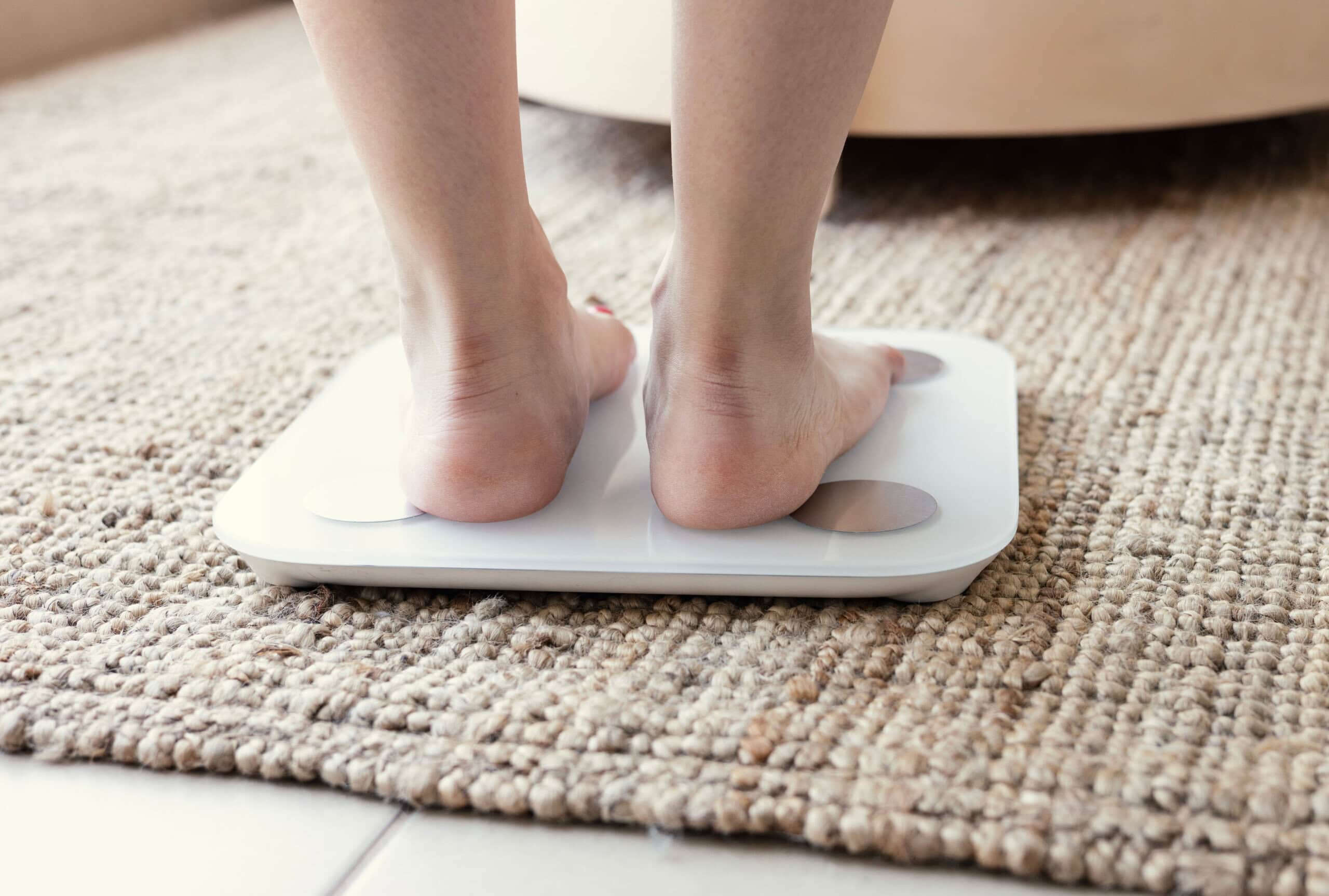Getting started with mindfulness
Mindfulness is a practice which has been shown to improve mental health, help reduce alcohol intake, and even result in weight loss, among many other health benefits.1
Put simply, mindfulness is the ability to be fully present and aware of what is happening in the current moment, free from judgement or concern for the past or future. But exactly how do you do this? Keep reading to find out the benefits of the practice, and our top tips for getting started with mindfulness.
The benefits of mindfulness
There are extensive benefits of practising mindfulness, so we believe it should be incorporated into a holistic approach to health and wellbeing. This is why we feature mindfulness resources on our Programme, with options for those who are new to mindfulness and those more experienced. This article is great if you’re getting started with mindfulness. Here are just a few reasons you should add it to your weekly routine:
- It can help to reduce stress and anxiety: Studies have shown that mindfulness reduces stress and increases wellbeing.2 It’s been shown to be as effective as cognitive-behavioural therapy (CBT) in treating anxiety and depression.3
- It improves sleep: Mindfulness has been shown to be an effective treatment for sleep disturbances and difficulties.4 What’s more, practising mindfulness has been found to be more immediately effective for improving sleep quality than adopting a structured sleep hygiene routine. So, if you’re in need of some quality sleep tonight, it’s worth getting started with mindfulness.5
- It may improve blood sugar control: Mindfulness therapy has been proven to actively control glycemic levels, particularly in those with type 2 diabetes. Research suggests that by enhancing attention control and self-awareness, mindfulness helps to manage lifestyle factors associated with cardiovascular disease and type 2 diabetes.6
- It can aid weight loss: Getting started with mindfulness when beginning a health journey has been shown to result in successful weight loss and more sustained results.7 The habit is also often used to treat food-related disorders by reducing cravings and increasing fullness cues. 8,9
- It can help to improve brain health: A 2020 study found that meditators have significantly lower rates of annual brain tissue loss, specifically in those regions of the brain in charge of mood regulation and nervous system processing.10
If these benefits sound like positive changes you’d like to make, keep reading to discover our top tips for getting started with mindfulness.
Four simple ways to get started with mindfulness
When beginning a new habit or practice, it can feel difficult to know where to start. This particular practice is something anyone can try, and there are a few simple ways we like to encourage getting started with mindfulness:
- Begin your day with intention: Start your day positively by sitting on the edge of your bed as you wake up and acknowledge the sensations in your body. Then, ask yourself what your intention of the day could be, for example, “today I want to eat well” or, “today I want to be kind to others”. This becomes an opportunity later in your day to check in with yourself and your intentions.
- Go for a walk in nature: As a beginner, it can be easier to practise mindfulness somewhere quiet, away from the hustle and bustle of everyday life. Go for a walk in nature and become aware of the sights, smells and sounds around you. Notice whether birds are singing or if there is a breeze, and don’t forget to breathe in the fresh air.
- Be aware of your breath: Wherever you are, you can decide to place attention on your breath. Become aware of the rising and falling of your chest with each inhale and exhale. Then, count the seconds you spend on the inhale, the pause and the exhale. If your mind starts to wander, simply bring your attention back to your breath, free of judgement as there is no objective here besides simply being present in your own body.
- Follow a guided meditation: Following a guided meditation is a great way to be introduced to the practice when getting started with mindfulness. An experienced practitioner can help lead you through what to focus on and prevent you from becoming too distracted. Sit comfortably, find a resource and relax your muscles as you listen. Please enjoy this free meditation from our programme that we’ve extended to the public.
So, before you go on with your day, try taking a mindful, deep breath and enjoy the sensation of focusing on your breath and body for a moment.
Asadollahi T, Khakpour S, Ahmadi F, Seyedeh L, Tahami, Matoo S, Bermas H. Effectiveness of mindfulness training and dietary regime on weight loss in obese people. J Med Life. 2015;8(Spec Iss 4):114-124. PMID: 28316717; PMCID: PMC5319254.
https://psycnet.apa.org/doiLanding?doi=10.1037%2Focp0000144
Hofmann SG, Gómez AF. Mindfulness-Based Interventions for Anxiety and Depression. Psychiatr Clin North Am. 2017 Dec;40(4):739-749. doi: 10.1016/j.psc.2017.08.008. Epub 2017 Sep 18. PMID: 29080597; PMCID: PMC5679245.
Rusch HL, Rosario M, Levison LM, Olivera A, Livingston WS, Wu T, Gill JM. The effect of mindfulness meditation on sleep quality: a systematic review and meta-analysis of randomized controlled trials. Ann N Y Acad Sci. 2019 Jun;1445(1):5-16. doi: 10.1111/nyas.13996. Epub 2018 Dec 21. PMID: 30575050; PMCID: PMC6557693.
Black DS, O’Reilly GA, Olmstead R, Breen EC, Irwin MR. Mindfulness meditation and improvement in sleep quality and daytime impairment among older adults with sleep disturbances: a randomized clinical trial. JAMA Intern Med. 2015 Apr;175(4):494-501. doi: 10.1001/jamainternmed.2014.8081. PMID: 25686304; PMCID: PMC4407465.
Hamasaki H. The Effects of Mindfulness on Glycemic Control in People with Diabetes: An Overview of Systematic Reviews and Meta-Analyses. Medicines (Basel). 2023 Sep 7;10(9):53. doi: 10.3390/medicines10090053. PMID: 37755243; PMCID: PMC10534311.
Asadollahi T, Khakpour S, Ahmadi F, Seyedeh L, Tahami, Matoo S, Bermas H. Effectiveness of mindfulness training and dietary regime on weight loss in obese people. J Med Life. 2015;8(Spec Iss 4):114-124. PMID: 28316717; PMCID: PMC5319254.
Giannopoulou I, Kotopoulea-Nikolaidi M, Daskou S, Martyn K, Patel A. Mindfulness in Eating Is Inversely Related to Binge Eating and Mood Disturbances in University Students in Health-Related Disciplines. Nutrients. 2020 Feb 2;12(2):396. doi: 10.3390/nu12020396. PMID: 32024270; PMCID: PMC7071141.
Palascha A, van Kleef E, de Vet E, van Trijp HCM. The effect of a brief mindfulness intervention on perception of bodily signals of satiation and hunger. Appetite. 2021 Sep 1;164:105280. doi: 10.1016/j.appet.2021.105280. Epub 2021 Apr 30. PMID: 33940054.
https://link.springer.com/article/10.1007/s11682-021-00578-6









